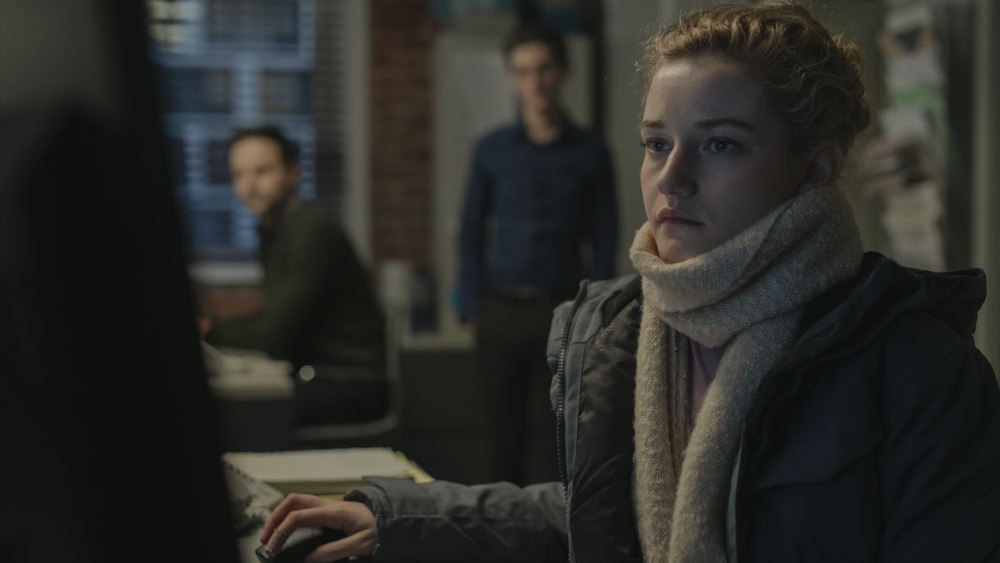|
By Nadia Dalimonte *Watched in April 2020* Julia Garner in The Assistant (2020) The passive complicity that has made space for monsters like Harvey Weinstein to be formed is explored quietly, with incredible tenacity, in The Assistant. Written and directed by Kitty Green, the movie focuses on a day in the life of an assistant to a powerful executive in the entertainment industry. Jane, played by Julia Garner, follows a mundane office routine. She makes the coffee, washes the dishes, answers the phone, grabs the lunches, stands by the printer, waits for the copies…
From the moment we are introduced to the office setting, the toxicity is engulfing. The office is gloomy and grey. There is no sense of healthy solidarity among the people who work there. Jane is engulfed by employees who mostly don’t even acknowledge her presence. The few who do are men sitting directly beside and across from her - and they ever so subtly exert a power that entitles them to watch over her shoulder and divert her attention towards things they don’t want to deal with. As Jane gets through the day, with her unseen boss muffled in the background (either hidden in a room or over the phone), she becomes increasingly aware of the abuse taking place behind closed doors. Told completely from Jane’s point of view, we watch as she is conflicted with what to do and who she could turn to. Wrestling with how to act, she decides to visit the human resources department. The scene between Jane and the head of HR, played by Matthew Macfadyen, is devastating. A cold and blatant disregard for Jane’s concern puts her in a powerless position that men like Weinstein exploited. So much of the movie is centered on the tense urge to say something, do something, without a safe space to do so. Julia Garner is easily one of the best actresses working today. Her performance as Jane is out of this world. So nuanced, detailed, and quietly devastating. She gets under your skin and stays there. One of the best acting moments of the movie is the writing of the apology emails. There are two instances in which Jane’s boss calls into the office and scolds her, through no fault of her own. As a response, she quickly starts on the apologies, while her two male co-workers stand behind her dictating what to write. These scenes really struck a chord with me personally. It is tough to watch Jane’s feelings brushed off and redirected towards how fortunate she should be for the opportunity she has. To quote Kitty Green, “the complicated thing about this script is that people can be victims and victimizers at the same time […] they’re just trying to survive”. The movie is incredibly grounded in its depiction of culpability. Green is showing us a realistic approach here; we see just how easy it is for people to look the other way and knowingly contribute to an environment that allows women to be abused. There’s a moment towards the end of the movie that captures this all too well. Jane is leaving the office. Her boss’s door is closed; muffled sounds of him with a woman. On the elevator ride out, one of the employees says to Jane: “she’s getting a lot more out of it than he is”. The drowning of conscience in that moment is horrifying. The absence of a score until the very end of the movie is a strong choice. The Assistant needs to be heard, loud and clear. This is an urgent post-Me Too depiction of human conflict and complicity, featuring incredible exposition and a stunning lead performance with real staying power.
0 Comments
Leave a Reply. |
Archives
June 2024
Categories |


 RSS Feed
RSS Feed